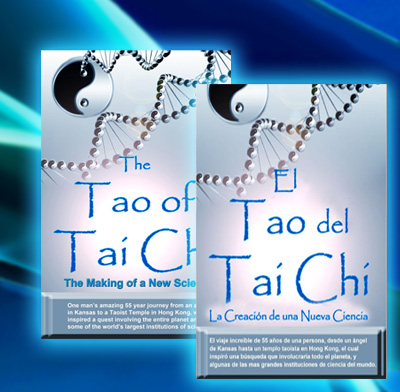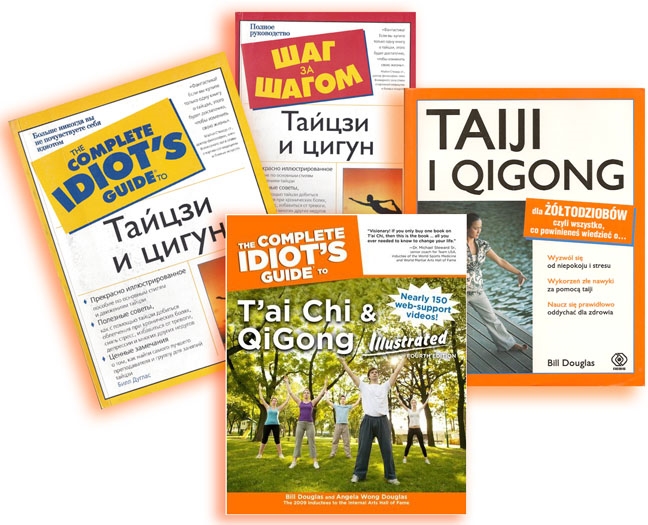Baby Calmed by Tai Chi
Baby Calmed by Tai Chi
aDD/ADHD and Tai Chi and qigong
Attention Deficit and Hyper-Activity Disorder and Tai Chi and Qigong
Research at the University of Miami School
of Medicine has shown that adolescents with ADHD (Attention
Deficit and Hyperactivity Disorder) displayed less anxiety,
daydreaming behaviors, inappropriate emotions and
hyperactivity, and greater improved conduct, after a five
week, two day per week class. T'ai Chi meets many of the
criteria for mood management techniques recommended for ADD
(see the Treating Attention Deficit Disorder [ADD] section
earlier in this chapter).
[Hernandez-Reif, M., Field,
T.M., & Thimas, E. (2001). Attention deficit hyperactivity
disorder: benefits from Tai Chi. Journal of Bodywork &
Movement Therapies, 5(2):120-3, 2001 Apr, 5(23 ref), 120-123.]
Tai Chi May Improve Some ADHD Symptoms
May 26, 2010 (New Orleans, Louisiana) - The practice of tai
chi chuan for 6 weeks during a summer camp improved behavior
control in adolescents with mental illness, according to a
study presented at the American Psychiatric Association (APA)
2010 Annual Meeting.
"We found beneficial effects in
controlling hyperactivity in the group as a whole, and
adolescents with a diagnosis of
attention-deficit/hyperactivity disorder (ADHD) also showed
improvements in cognitive skills, "said Peng Pang, MD, a
resident in psychiatry at Maimonides Medical Center, Brooklyn,
New York.
Read entire article
at:
http://www.medscape.com/viewarticle/722490
School age children / ADHD. Some studies
suggest Tai Chi helps children with special needs, including
those with ADHD, and to deal with anxiety and moods.
[Tai
Chi and Yoga have common mind-body elements] A randomized
control trial of yoga versus physical education by researchers
at Harvard Medical School showed that high school students who
practiced yoga had a better mood overall and felt less
anxiety, while the typical gym class group showed a worsening
of these symptoms over the course of the 10-week study.
--- Harvard Medical School Guide to Tai Chi. Page 274.
Read
more at
Harvard Health Publications
Attention Deficit Hyperactivity Disorder:
Benefits from Tai Chi, Journal of Bodywork and Movement
Therapies, April 2001
Thirteen adolescents with Attention
Deficit Hyperactivity Disorder (ADHD) participated in Tai Chi
classes twice a week for 5 weeks. Teachers rated the
children's behaviour on the Conners Scale during the baseline
period, after the 5 week Tai Chi session period and 2 weeks
later. After the 10 Tai Chi sessions the adolescents displayed
less anxiety, improved conduct, less daydreaming behaviours,
less inappropriate emotions, and less hyperactivity. These
improved scores persisted over the 2-week follow up (no Tai
Chi period).
FIND MUCH MORE RESEARCH AT
THE "QIGONG INSTITUTE DATABASE"
Since 1984,
collecting breaking medical/science research on Qigong, Tai
Chi, Yoga, and Mind-Body Education
Click here
for Qigong Institute Database...
* NOTE: World Tai Chi & Qigong Day advises
consulting your physician before beginning any new exercise,
herbal, diet, or health program. The research listed here is
meant to stimulate a discussion between you and your
physician, health insurance carrier, etc., not as medical
advise. Research and comments provided here are hoped to
stimulate a more robust discussion of powerful natural
mind/body health tools. Popular media, health media, and
government must increase attention to stunning emerging
research, including the UCLA study indicating Tai Chi
participants enjoyed a 50% increase in immune system
resistance to viral infection.
- To learn more about tai chi & qigong medical research,
see the below book,
"the complete idiot's guide to tai chi & qigong,", and also
"Harvard Medical School Guide to Tai Chi," and
"The way of qigong: the art and science of chinese energy healing."
Click to purchase this acclaimed best-selling Tai Chi book, with nearly 150 web-video support videos for the detailed text/illustration instruction as a "gift of health" for loved ones.
A new paradigm in multi-media educational books.
"Visionary! If you only buy one book on T'ai Chi, then this
is the book. This book is all you ever needed to know to
change your life. I have taught T'ai Chi for several decades
myself, yet I have now read Bill's book from cover to cover
seven times, and still get something new from it each time."
– Dr. Michael Steward Sr., D.MA, Ph.D., MA, Senior
Coach for Team USA, Inductee of the World Sports Medicine and
World Martial Arts Hall of Fame
"Sometimes Chinese
culture can be difficult to explain. Sifu Bill Douglas
successfully uses American culture to explain the art of T'ai
Chi Chuan. He simplifies difficult concepts, making them
easier to understand. This book takes the best parts of T'ai
Chi and makes them understandable [to Westerners] without
requiring a grounding in Chinese culture and history."
– Sifu Yijiao Hong, USA All-Tai Chi Grand Champion and USA
Team member; Certified International Coach and Judge,
International Wushu Federation
"Douglas has
achieved for QiGong what Apple did for the computer. He's
brought it to the people … great place to start for beginners.
… Teachers may also find this an excellent manual 'on how to
explain these concepts to the general public…'"
– R.
Poccia,
"The Tao of Tai Chi: The Making of a New Science" (now available in both English and Spanish))

Harvard Medical School Researchers Launch Tai Chi as Therapy Lecture to Commemorate World Tai Chi Day
The new Harvard Medical School Guide to Tai Chi is a powerful
reference book for all tai chi and qigong advocates, teachers,
etc. The Harvard Guide cites WorldTaiChiDay.org's work in
expanding global awareness of tai chi and qigong!
Our
efforts have exposed over ONE BILLION potential viewers/readers
of mass media to Tai Chi and Qigong and its myriad health
benefits, via our annual WTCQD worldwide events.
